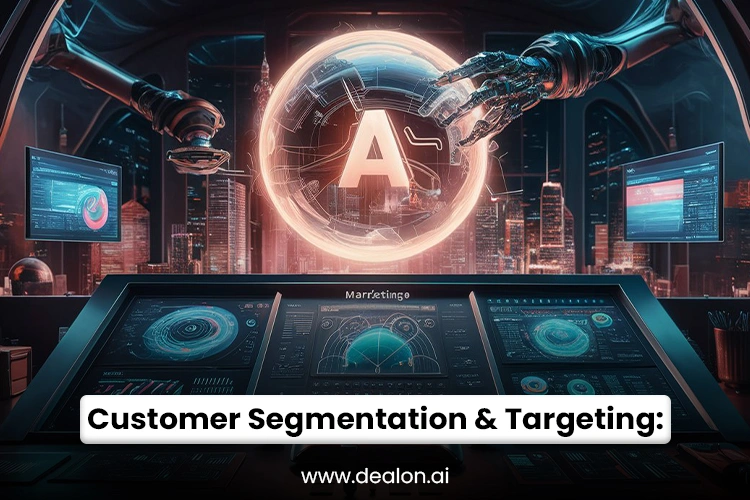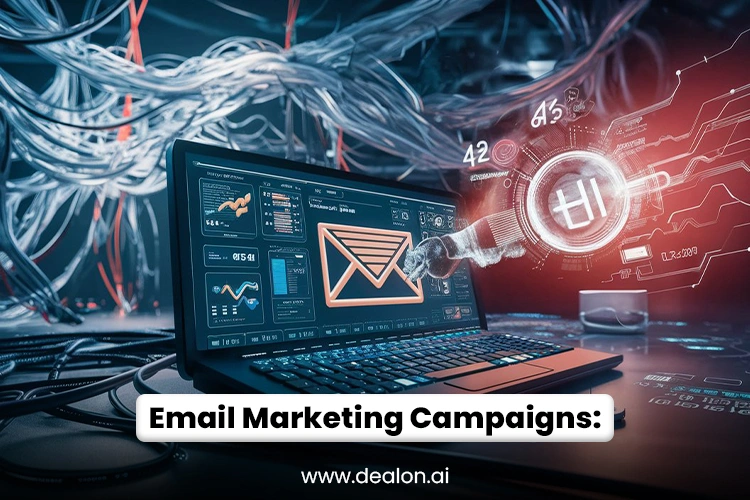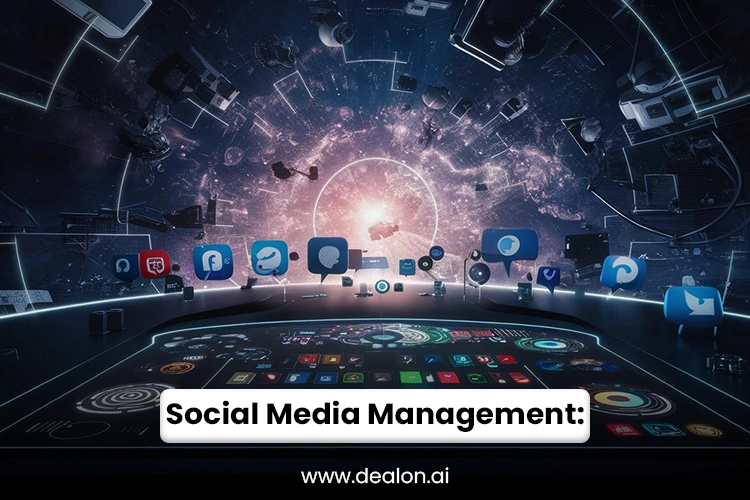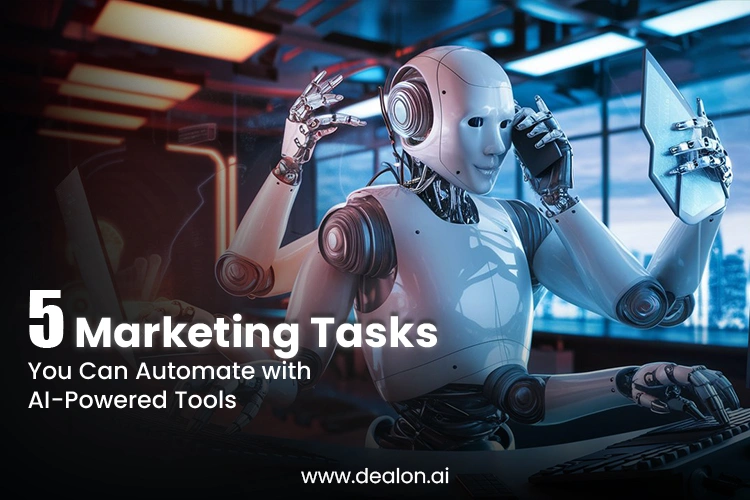Businesses are increasingly seeking cutting-edge solutions to enhance efficiency and precision. As the demand for faster, more personalized marketing strategies grows, one innovation stands out: AI-powered tools. These intelligent technologies are transforming how companies approach marketing, offering automated solutions for a wide array of tasks that were once manual and time-intensive. By integrating AI into their operations, businesses can streamline workflows and elevate their marketing strategies to new heights, ensuring relevance and engagement in an increasingly competitive market.
AI’s ability to analyze vast datasets, predict consumer behavior, and optimize campaigns in real-time presents a remarkable opportunity for marketers. Fueled by artificial intelligence, automation allows for enhanced targeting, personalized content delivery, and data-driven decision-making, all with minimal manual intervention. The result? A highly efficient, scalable marketing process that frees up valuable resources for innovation and strategic growth.
Also Read: 7 AI Applications for Enhancing User Experience in Mobile Apps In 2025
Customer Segmentation and Targeting: Revolutionizing Marketing with AI-Powered Tools

Accurate segmenting and targeting customers is a cornerstone of any successful strategy in modern marketing. Traditional customer segmentation methods, such as relying on broad demographic categories or limited surveys, often fail to deliver the precision and depth needed for highly effective campaigns. These approaches are time-consuming, imprecise, and frequently miss out on valuable insights. Enter AI-powered tools—revolutionizing how businesses segment their audiences using extensive data sets and advanced algorithms to create hyper-targeted customer segments.
AI analyzes diverse and often complex data points that traditional methods cannot handle. These data points include transactional data like purchase history and behavioral data such as browsing patterns, interaction with digital content, and social media activity. AI algorithms can process this information at lightning speed, identifying hidden patterns and correlations that can be used to create dynamic customer segments. Rather than depending on a one-size-fits-all approach, AI allows businesses to craft customer profiles based on real-time behaviors, preferences, and sentiment analysis extracted from social media conversations.
With this wealth of data, businesses can implement hyper-personalized marketing strategies. AI tools can automatically categorize customers into segments based on nuanced variables such as purchasing frequency, brand affinities, geographic location, or even specific interaction types with digital touchpoints. For instance, customers who consistently engage with content about sustainability can be grouped, allowing businesses to target them with eco-friendly product recommendations or exclusive offers. This level of segmentation ensures that each customer receives the right message at the right time, dramatically improving engagement and conversion rates.
Moreover, AI-enhanced targeting allows for more precise customer outreach. Machine learning algorithms can continuously learn from customer interactions and adapt in real-time, fine-tuning segments as new data emerges. For example, if a customer’s browsing behavior shifts or their purchasing patterns change, AI can instantly reassign them to a different segment more reflective of their current interests, ensuring that marketing content remains relevant and timely.
Beyond improved precision and efficiency, AI-powered segmentation helps businesses save significant resources. By automating the segmentation process, marketers can focus on crafting innovative campaigns and creative messaging rather than manually sorting through data. Additionally, AI can quickly test multiple segmentations to determine which resonates most effectively with target audiences, allowing businesses to optimize campaigns faster and more efficiently.
Ultimately, applying AI in customer segmentation and targeting does more than refine marketing efforts—it drives a deeper connection with customers. Through more personalized, data-driven marketing strategies, businesses can foster brand loyalty, enhance customer satisfaction, and achieve higher conversion rates, ensuring long-term success in an increasingly competitive market.
Email Marketing Campaigns: Unlocking Efficiency with AI Automation

Email marketing resumes are a cornerstone of digital marketing strategies due to their unparalleled ability to engage with customers, nurture leads, and drive conversions. However, managing email lists, personalizing content, and manually tracking campaign performance can be daunting. As marketing campaigns scale, the complexity increases, often overwhelming marketing teams. Enter AI-powered tools—transforming email marketing into an automated, highly efficient, and results-driven process.
AI excels at streamlining the core tasks involved in email marketing, allowing businesses to focus on the strategic aspects of their campaigns. One of the most transformative applications of AI is in email list segmentation. Traditional segmentation methods rely on generic categories like age or location, but AI goes beyond that. AI can develop dynamic segments based on real-time data by analyzing customer behavior, preferences, and interactions. This allows marketers to send highly tailored messages to specific audience groups, ensuring that the right content reaches the right person at the right time.
For instance, AI can detect customers’ interactions with emails—whether they opened previous messages, clicked on links, or made a purchase—and adjust future campaigns accordingly. This enables the automation of personalized subject lines and content tailored to each recipient’s preferences. Using NLP, AI can craft subject lines optimized for higher open rates, using language that resonates with each customer segment. Personalized content enhances user experience and significantly boosts engagement rates, leading to higher customer retention and conversion.
Beyond segmentation and personalization, AI can also optimize the timing of email campaigns. AI tools can analyze past email performance data to predict the most effective times to send emails to different customer groups. For instance, AI may determine that one segment of customers engages best in the morning while another may be more active in the evening. This precision in timing ensures that emails are received when recipients are most likely to engage, thereby maximizing open and click-through rates.
AI-powered email automation tools also allow marketers to scale their campaigns effortlessly. With automated workflows, businesses can trigger emails based on customer actions—such as a welcome email when a new user signs up or a personalized offer when a customer abandons a cart. These triggers enhance the chances of conversions by delivering timely and relevant messages at critical stages of the customer journey.
Finally, AI offers real-time performance analytics that can continuously improve email campaigns. AI tools can suggest optimizations in subject lines, content, or timing by assessing open rates, click-through rates, and conversions, further fine-tuning the campaign for better results. These continuous feedback loops ensure email campaigns evolve and adapt to customer preferences and behaviors without manual intervention.
Incorporating AI into email marketing reduces the complexity of managing campaigns and boosts their effectiveness. By automating segmentation, personalization, timing, and optimization, businesses can deliver specific content to their target customers at scale—ultimately increasing engagement, conversions, and customer loyalty while saving valuable time and resources. With AI, email marketing evolves into a dynamic, proactive tool that aligns perfectly with modern customer expectations.
Social Media Management: Leveraging AI to Streamline Digital Engagement

Maintaining a robust social media presence in today’s fast-paced digital ecosystem is significant for businesses seeking to confront their audience, raise brand awareness, and drive conversions. However, managing social media across multiple platforms can become overwhelming, primarily when businesses must ensure real-time engagement and consistently fresh content. The complexity of responding to customer inquiries, crafting compelling posts, and analyzing performance metrics can stretch resources thin. Thankfully, AI-powered social media management tools offer a transformative solution, automating many aspects of this multifaceted process and enabling marketers to focus on more strategic initiatives.
AI tools excel in automating the content creation process, dramatically reducing the time spent on brainstorming and crafting posts. AI can generate relevant and timely content ideas that resonate with target demographics by analyzing trending topics, industry news, and audience preferences. These tools suggest captivating captions based on the tone and style that will most likely engage the audience. AI’s ability to scan vast amounts of social media data in real-time ensures that the content generated is relevant and aligned with the latest market trends, thus optimizing engagement potential.
Additionally, AI-powered social media management tools can schedule posts for optimal times based on audience activity patterns. AI algorithms analyze engagement data, identifying when a target audience is most active on a platform. This predictive capability ensures businesses can schedule content to appear at peak times, increasing the likelihood of higher engagement rates. By automating the posting schedule, companies can maintain a consistent online presence without manual oversight, ensuring that content reaches its audience when they are most receptive.
Real-time engagement monitoring is another area where AI excels. AI algorithms can automatically track interactions across social media platforms—likes, shares, comments, or mentions—and provide valuable insights into how audiences respond to specific posts. These tools can also monitor conversations and detect shifts in sentiment, offering businesses a real-time understanding of their audience’s moods and reactions. With this data, AI tools can suggest optimizing future posts or engaging followers more effectively, helping brands stay agile and responsive in their digital communication.
One of the most significant advantages of using AI in social media management is its capacity to refine social media strategies based on performance metrics. AI can analyze past posts to identify which types of content, captions, or posting times resulted in the highest engagement, allowing marketers to adjust their strategies in real-time. Furthermore, AI’s capacity to process and interpret large volumes of data means businesses can continuously fine-tune their social media efforts to maximize ROI, ensuring that every post is aligned with overarching goals.
By automating the time-consuming aspects of content creation, scheduling, and engagement monitoring, AI allows businesses to optimize their social media strategies without being bogged down by manual tasks. With these powerful AI-driven tools, marketers can focus on delivering more meaningful, targeted campaigns while guaranteeing that their social media presence stays dynamic, appropriate, and engaging. As the digital landscape transforms, AI-driven social media management is essential for businesses aiming to develop lasting relationships with their audience.
Content Creation and Optimization: Enhancing Marketing Efficiency with AI
Creating high-quality, engaging, and SEO-optimized content is essential for any modern marketing strategy. However, consistently generating fresh content, ensuring it aligns with SEO best practices, and keeping it relevant can be time-consuming and resource-intensive. AI-powered tools are revolutionizing content creation by streamlining these tasks, enabling marketers to focus on refining their strategy and creative direction while automating the more repetitive aspects of content production.
AI generates content ideas by analyzing vast amounts of data, including trending topics, search queries, and competitor strategies. Using sophisticated keyword research tools, AI can suggest blog topics and headlines that align with current market trends, ensuring the content resonates with the target audience. These AI tools can also help marketers stay ahead of the curve by predicting what topics will likely gain traction, giving businesses a competitive edge in content planning.
Regarding content writing, AI tools can assist in drafting initial versions, providing a solid foundation for marketers to build. These tools use advanced language models to create coherent, contextually relevant content based on the input provided, saving time on drafting. Moreover, AI can offer suggestions for optimizing content and recommending edits to improve readability, engagement, and SEO performance. This includes keyword integration, content structure adjustments, and the enhancement of tone to align with audience expectations.
Additionally, AI can analyze existing content, identifying areas for improvement regarding SEO ranking and engagement. Whether adjusting keyword density, adding meta descriptions, or improving internal linking structures, AI ensures that content meets the highest SEO standards without requiring manual intervention. By automating and optimizing processes, AI allows marketers to enhance productivity and ensure that every piece of content is related, immersing, and primed for maximum visibility and performance across digital platforms.
Ad Campaign Management: Maximizing Efficiency and ROI with AI Automation
Managing digital ad campaigns can be labor-intensive, requiring marketers to continuously monitor performance, adjust bids, test creatives, and optimize targeting. Traditional approaches often involve a lot of manual intervention, making it challenging to keep up with fast-changing data and optimize campaigns in real time. AI-powered tools, however, are transforming ad campaign management by automating many aspects of the process, allowing businesses to run more efficient, data-driven campaigns that deliver better results with less effort.
One of the most powerful features of AI in ad management is automated bid adjustments. By analyzing real-time performance data, AI tools can adjust bids dynamically to ensure that ads are served to the right audience at the right time. These tools consider factors like user behavior, demographics, and even time of day to ensure that the ad spend is allocated effectively, optimizing ROI without requiring manual intervention. This precision ensures that businesses get the most value from their advertising budget.
AI is crucial in enhancing ad creatives by analyzing data to determine the most compelling images, copy, and calls to action that engage the target audience. AI tools can automatically adjust or recommend changes to improve engagement and conversion rates by testing and analyzing various creatives’ performance. This means marketers can focus on high-level strategy while AI handles the tactical optimization of creatives for maximum impact.
Moreover, AI provides real-time actionable insights, enabling marketers to fine-tune campaigns. By identifying underperforming segments or areas that need attention, AI tools empower businesses to make informed decisions quickly, optimize campaigns, and ensure that ad budgets are spent efficiently.
Conclusion
Integrating AI-powered tools into marketing strategies transforms how businesses approach key tasks, significantly improving efficiency and effectiveness. From customer segmentation to ad campaign management, AI offers robust solutions that save time and enhance the precision and impact of marketing efforts. Businesses can focus on high-level strategy and creative innovation by automating email marketing, social media management, and content creation. At the same time, AI handles the repetitive, data-driven tasks.
AI tools enable marketers to optimize targeting and personalize customer interactions, ensuring content, offers, and ads resonate with the right audience at the right time. With real-time insights, automated adjustments, and data-driven optimization, AI empowers businesses to refine campaigns and maximize ROI without manual intervention.
Incorporating AI into marketing workflows is no longer a luxury but a necessity for businesses looking to stay competitive in the digital world. By automating routine tasks, companies can allocate more resources toward strategic initiatives, fostering growth, customer satisfaction, and long-term success. As AI advances, its ability to transform marketing tasks will grow, unlocking greater opportunities for innovation and efficiency.

